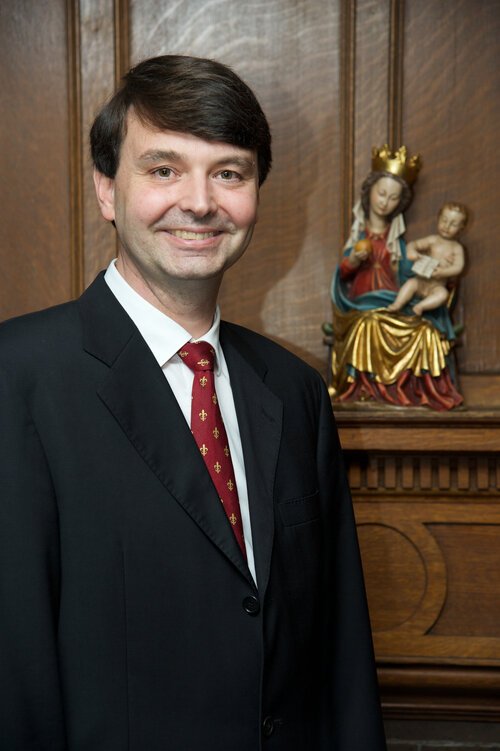MAiD in Canada Hits a Tragic Milestone
Medical Assistance in Dying (MAiD) is the official term in Canada for euthanasia that was legalized in 2016. The number of people dying at the hands of a doctor or even nurse practitioner there has grown every year and in 2022 reached the milestone of being the 5th leading cause of death in Canada. The official government report showed that the numbers of deaths from MAiD grew thirteenfold from 2016 to 2022. In fact, we can confidently say it must now be the 4th leading cause of death because in 2022 COVID deaths still outnumbered euthanasia deaths. Today that is no longer the case.
I have long been friends with Canadian Alex Schadenberg whose Euthanasia Prevention Coalition has fought euthanasia and assisted suicide in Canada and around the world for decades. He has a hotline for Canadians and regularly assists people tempted by MAiD to choose life. Very sadly, he told me that increasing numbers of Catholics are being euthanized and some do so with little awareness of the Church’s strong condemnation of the practice.
The Congregation for the Doctrine of the Faith’s “Declaration on Euthanasia” (1980) defined euthanasia this way. “By euthanasia is understood an action or an omission which of itself or by intention causes death, in order that all suffering may in this way be eliminated.” The Church firmly rejects as gravely sinful the killing of the innocent, even if done as a form of “mercy killing.” Pope Saint John Paul II wrote in Evangelium Vitae. “No circumstance, no purpose, no law whatsoever can ever make licit an act which is intrinsically illicit, since it is contrary to the Law of God which is written in every human heart, knowable by reason itself, and proclaimed by the Church.”
Legalization of euthanasia in Canada confirms many ethicist’s predictions as to the cultural effects of changing the law. The ancient wisdom that the law is a teacher is borne out time and again. Although many people do understand in theory that an unjust law is immoral and should not be obeyed, nevertheless, there is a marked tendency for average citizens to wrongly equate what is legal with what is ethical. In some ways this is a tribute to the fact that most of our laws in Western democracies do uphold Judeo-Christian moral principles. The societal trend in Canada has persuaded many elderly and sick persons they have a quasi-legal “duty to die” so as not to burden loved ones and society. Psychological pressure on vulnerable individuals in hospitals and nursing homes to accept MAiD is particularly sickening and made possible by being legal and by the active promotion of this end-of-life “option” by different activist groups. There are dedicated MAiD teams in all major Canadian hospitals who propose it to patients. One lady said they came back to her bedside offering euthanasia on five separate occasions even though she firmly rejected it every time.
The familiar slippery slope argument applies as well. Since legalization in 2016, despite many assurances and safeguards at the time that MAiD would only be allowed in extreme cases for persons with unbearable pain in the last few weeks or months of life, the restrictions on euthanasia were steadily and quickly loosened. The most radical change was the 2021 law that removed the requirement that a person be terminally ill to qualify for euthanasia. The latest legislation allows the euthanizing of people whose sole medical condition is a mental illness, like depression. This thankfully was officially delayed until 2027 by the Canadian Parliament, but pro-euthanasia groups are trying to use the courts to have it implemented immediately.
Medical Assistance in Dying is a consequentialist “bean counter’s” dream. There is tremendous self-congratulation in Canada about how much money they are saving by killing sick/disabled persons rather than paying for their treatment for years or in the last months of their lives. It is undoubtedly cheaper to give a lethal injection or poison pills rather than offering medical care. In societies that are rapidly aging because of very low birthrates over the last fifty plus years and increased life expectancy, it can be tempting to deal with the “Grey Tsunami” by legalizing and promoting euthanasia/assisted suicide.
The frustrating thing is that killing the innocent, even if they request it, is among the worst ethical violations possible. It is extremely corrosive of the ethos of doctors who should practice the art of healing and who instead become hired killers, as Pope Francis would say. I remember one proposal that if euthanasia was legalized there should be designated trained executioners to do it as there are for capital punishment in many countries. Pro-euthanasia groups did not like this idea because they want to associate medical professionals with death dealing and not respect their vocation as dedicated healers. In actual fact, MAiD, or euthanasia Canadian style, is increasingly done as the main activity of specialized personnel. In the USA, some doctors do practice assisted suicide, where the victims are given the deadly drugs and technically kill themselves, as their main activity, just as many specialize in aborting children.
Joseph Meaney received his PhD in bioethics from the Catholic University of the Sacred Heart in Rome. His doctoral program was founded by the late Elio Cardinal Sgreccia and linked to the medical school and Gemelli teaching hospital. His dissertation topic was Conscience and Health Care: A Bioethical Analysis. Dr. Meaney earned his master’s in Latin American studies, focusing on health care in Guatemala, from the University of Texas at Austin. He graduated from the University of Dallas with a BA in history and a concentration in international studies. The Benedict XVI Catholic University in Trujillo, Peru, awarded Dr. Meaney an honorary visiting professorship. The University of Dallas bestowed on him an honorary doctorate in Humane Letters in 2022.


